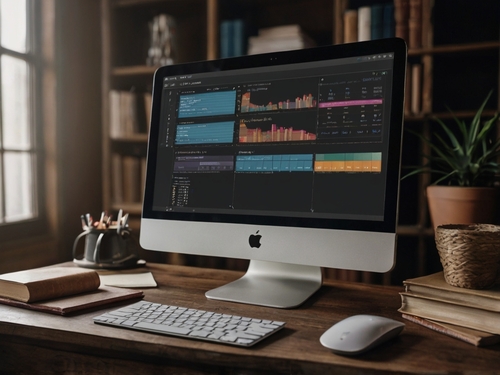Introduction
In today’s competitive business landscape, understanding tax accounting is not just a necessity—it’s a strategic advantage. Whether you’re a freelancer, startup owner, or running an established small business, having a firm grasp of tax accounting can help you stay compliant with tax laws, reduce liabilities, and manage finances more efficiently. This guide aims to simplify tax accounting by breaking it down into manageable concepts, making it easier for beginners and small business owners to navigate the often-confusing world of taxation.
What is Tax Accounting?
Tax accounting is a specialized branch of accounting that focuses on the preparation, analysis, and presentation of tax returns and payments. Unlike general financial accounting, which is concerned with a company’s overall financial health, tax accounting deals strictly with how financial activities impact a business or individual’s tax obligations. It ensures that all legal requirements are met, including accurate income reporting, deduction claims, and timely filing of tax documents.
In simple terms, tax accounting is all about tracking income, expenses, and deductions in a way that aligns with national and local tax laws. Its main objective is to calculate the amount of tax owed and identify legitimate ways to reduce that liability.
Why is Tax Accounting Important for Small Businesses?
For small businesses, tax accounting is more than just a year-end task—it’s a year-round necessity. Here’s why:
-
Legal Compliance: Governments require businesses to keep accurate tax records. Failure to comply can lead to penalties, audits, or even legal action.
-
Tax Planning: Proper tax accounting allows business owners to forecast their tax obligations and plan accordingly. This can lead to significant savings by taking advantage of tax deductions, credits, and other benefits.
-
Improved Cash Flow: Knowing your tax obligations in advance helps in managing cash flow effectively. Businesses can avoid unexpected tax bills that disrupt operations.
-
Better Decision-Making: When you understand your tax position, you can make informed business decisions, such as when to invest, expand, or reduce spending.
Core Components of Tax Accounting
Tax accounting involves several critical elements that every business owner should be familiar with:
-
Income Reporting: Accurately reporting income from all sources is the foundation of tax accounting. This includes sales revenue, interest, rental income, and more.
-
Expense Tracking: Deductions reduce taxable income. Keeping a detailed record of all allowable business expenses—such as rent, utilities, travel, and office supplies—can minimize tax liability.
-
Depreciation and Amortization: These accounting methods spread out the cost of long-term assets over several years, reducing taxable income annually.
-
Payroll Taxes: If your business has employees, you must manage payroll taxes, which include income tax withholdings, Social Security, and Medicare contributions.
-
Filing Deadlines: Staying aware of key tax filing dates is essential to avoid penalties and interest charges.
Tax Accounting Methods
There are two main methods of tax accounting:
-
Cash Basis Accounting: Income is recorded when received, and expenses are recorded when paid. This method is simpler and often used by small businesses and sole proprietors.
-
Accrual Basis Accounting: Income and expenses are recorded when they are earned or incurred, regardless of when cash is exchanged. This method gives a more accurate financial picture and is typically required for larger businesses.
Real-Life Application of Tax Accounting
Imagine a small online retail business. Throughout the year, the owner tracks all income from sales and expenses such as inventory purchases, advertising, and shipping. At the end of the year, with the help of tax accounting principles, they prepare accurate tax returns, claim deductions for business-related expenses, and reduce their tax liability legally.
Similarly, a freelance consultant who regularly logs income from different clients and keeps receipts for travel and office supplies can use tax accounting to save money and file taxes confidently without surprises.
Conclusion
Tax accounting may seem overwhelming at first, but with the right approach and consistent record-keeping, it becomes a powerful tool for business success. It helps ensure legal compliance, improves financial clarity, and opens doors to smart tax-saving strategies. Whether you handle it yourself or hire a professional, understanding the basics of tax accounting can make a big difference in the financial health and sustainability of your business. Start early, stay organized, and use tax accounting to your advantage.


